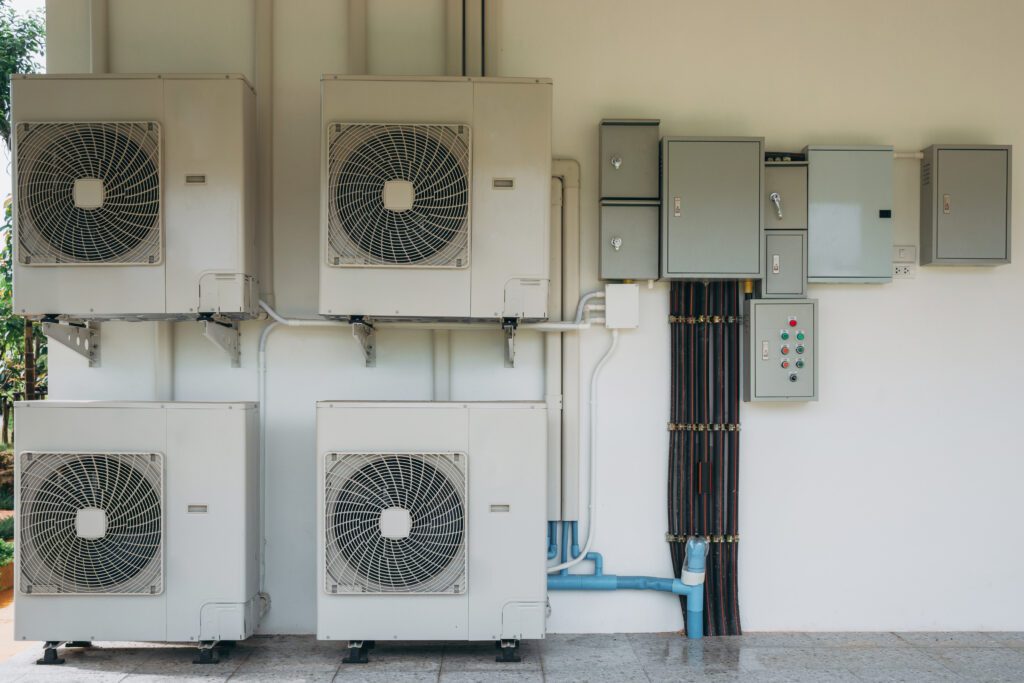When it comes to reducing energy bills, a quality HVAC system can be a game-changer. But how exactly does it contribute to lower energy costs? In this FAQ blog, we’ll break down the benefits and features of a quality HVAC system that make it an energy saver.
What is a Quality HVAC System?
A quality HVAC system is one that is energy-efficient, made from durable materials, and incorporates the latest technology. These systems are designed to operate efficiently while providing maximum comfort with minimal energy consumption. Choosing the right HVAC system can make a significant difference in how much energy your home uses. A good HVAC system not only heats and cools your home effectively but also maintains a healthy indoor air quality. This is especially important because it ensures the air you breathe is clean and free from pollutants, which can affect your health negatively.
But how do you identify a quality HVAC system? Look for systems that have a high Seasonal Energy Efficiency Ratio (SEER) rating, and consider those that are ENERGY STAR certified. These certifications indicate that the system is both energy efficient and environmentally friendly. Energy-efficient HVAC systems are specifically engineered to minimize waste and maximize performance, thereby lowering utility costs and promoting a sustainable environment.
How Does Proper Installation Impact Energy Efficiency?
Ensuring your HVAC system is installed correctly is crucial for energy efficiency. Poor installation can lead to air leaks and improper airflow, making the system work harder and consume more energy. An improperly installed system can be as detrimental as having an old, inefficient unit. It might cycle on and off frequently, struggle to reach desired temperature settings, or even fail to heat or cool certain parts of your home adequately.
It’s important to have your HVAC system installed by certified professionals who understand the intricacies of proper installation. An expert installation ensures that your system runs smoothly and provides uniform comfort throughout your home. Moreover, by sealing ducts properly and ensuring all components are accurately installed, you can significantly reduce your energy bills.
The Role of Regular Maintenance
Regular maintenance keeps your HVAC system running smoothly. By addressing minor issues early, you prevent them from becoming major problems that require more energy to fix and cost a lot more. Preventive maintenance such as cleaning and changing filters, checking for leaks, and ensuring the thermostat works properly can dramatically influence the efficiency of a system.
Moreover, routine check-ups can extend the lifespan of your HVAC system and keep indoor air quality at optimal levels by reducing dust and allergens. A well-maintained system not only lowers your energy consumption but also enhances the comfort and health of your living environment. Regular inspections by professionals can spot hidden issues that might compromise efficiency and provide solutions to sustain long-term performance.
Energy-Saving Features to Look For
Modern HVAC systems come with energy-saving features such as programmable thermostats, variable speed motors, and high-efficiency ratings. These features help reduce energy consumption and adjust to the specific needs of your home. For instance, a programmable thermostat can learn your schedule and adjust temperatures accordingly, ensuring energy isn’t wasted while you’re away.
Variable-speed motors, on the other hand, can adjust their operation levels to meet the heating or cooling demand precisely, thereby avoiding energy waste. High-efficiency systems not only provide better comfort but also operate more quietly and improve indoor air quality through advanced filtration technologies. These innovative features can significantly reduce the amount of electricity your HVAC system consumes during peak usage periods.
The Impact of Ductwork on Energy Efficiency
Good ductwork design and insulation reduce energy waste. Leaks and poor insulation in ducts can result in significant energy loss, causing your HVAC system to work harder than necessary. The U.S. Department of Energy states that a well-sealed and insulated duct system can improve HVAC efficiency by as much as 20%.
Inspecting your ductwork can reveal hidden problems that might be costing you more in energy bills. If airflow is restricted or ducts are leaking, even a high-efficiency HVAC system will struggle to deliver optimal performance. Properly sealed ducts ensure air is distributed evenly throughout your home, reducing the system’s workload and, consequently, your energy bills. Scheduling a professional duct inspection can thus be a wise investment toward long-term energy savings.
How Upgrading Old Systems Can Cut Costs
Older HVAC systems tend to be less efficient and may cost more to run. Upgrading to a modern system can significantly cut energy costs and provide better temperature control, especially when paired with the latest energy-saving technologies. Old systems may struggle with maintaining consistent temperatures and could cycle too frequently, increasing wear and energy consumption dramatically.
Replacing your outdated HVAC system with a new, energy-efficient model can result in long-term cost savings, as well as a more comfortable home environment. These modern systems offer advanced features like variable speed motors, precision temperature controls, and energy-efficient compressors that dramatically enhance performance while reducing consumption. Such upgrades not only save money on utility bills but also often come with warranty benefits, offering peace of mind with your investment. Consider consulting with a professional for recommendations on the best systems tailored to your home’s specific needs.
Why a Quality HVAC System is an Energy Saver
Investing in a quality HVAC system is not just about comfort, but also about energy efficiency and cost savings. By upgrading to a system that is properly installed, regularly maintained, and equipped with modern features, you can enjoy a cozy home while keeping your energy bills in check. Explore our top HVAC cost-saving tips for more ways to save.



